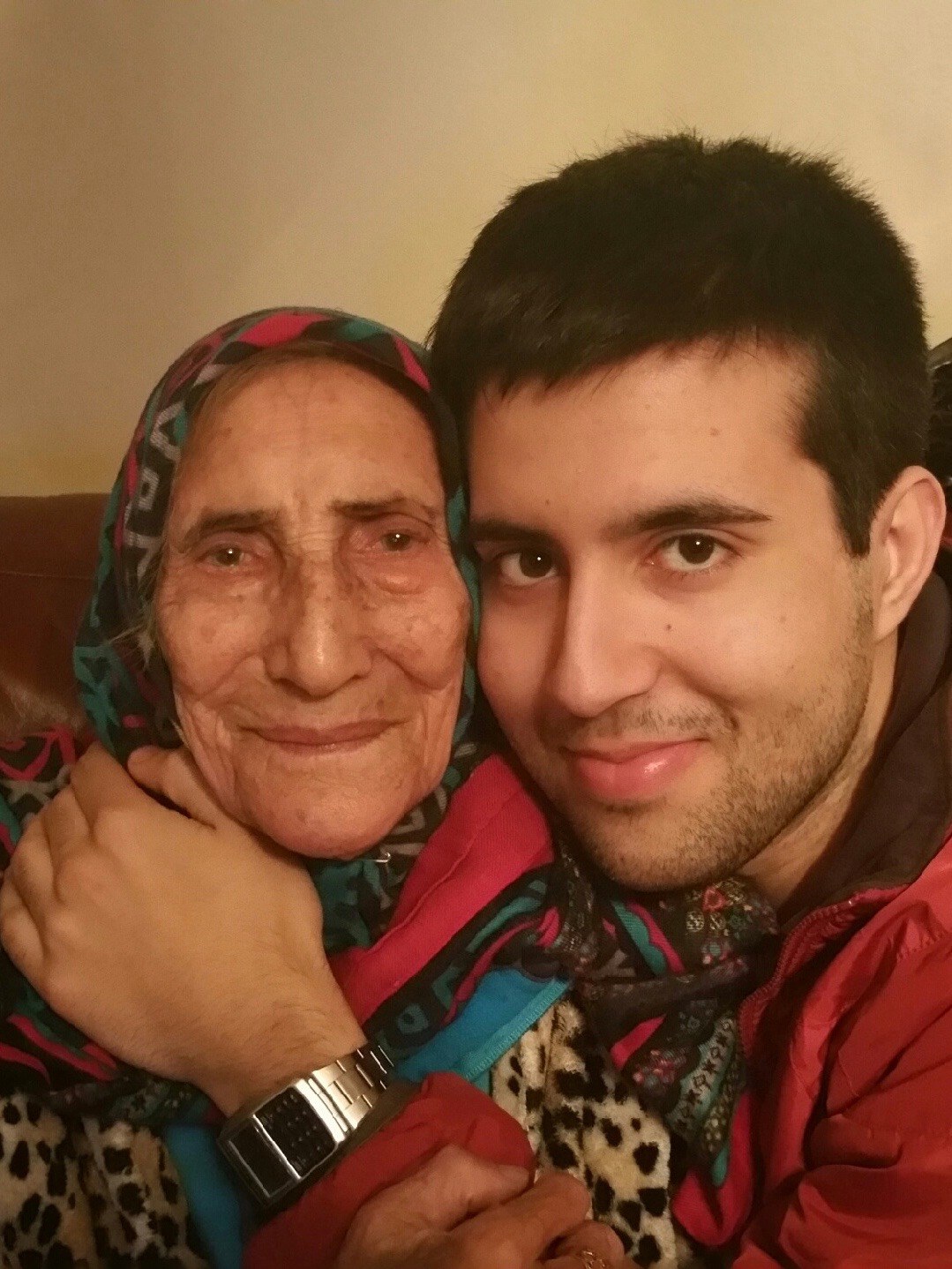This article is being published in collaboration with the Harvard Law & Policy Review (HLPR).
BY MASEEH MORADI*
The recent immigration executive order promises in its title to protect “the nation from foreign terrorist entry.” It does so by barring the entry of, among hundreds of millions of others, all of my aunts, uncles, and cousins (my own parents, once aliens, now citizens, would have been barred as well). Protecting the nation from terrorists evidently means banning everyone from Iran, even though no national from there, or any of the other listed countries, has committed deadly acts of terrorism in the United States since and including 9/11. The order does not care if one is in poor health, elderly, or requires a full minute to walk from one wall of a room to the other. It thus also bans my 97-year-old grandmother, one of the lights of my life.
My grandmother’s name is Tavoos, which means peafowl in Farsi. It fits well, as she is the most beautiful person I know, possessing a heavenliness that only time can bestow. Her beauty comes from raising seven children in rural Iran’s lower class during the mid-20th century, waking up before dawn to begin her daily 16 hours of backbreaking farming and cooking. It’s the beauty of being in the wrinkled twilight of a full life, one marked by the exultation of seeing a son realize his dreams in America and the endless sorrow of burying a daughter many decades too soon.
Grandma Tavoos has been a widow for a quarter of a century now, and during this period she has visited us regularly, and for six months at a time, on a B2 visa. She loves being here, semi-skipping during her morning walks in our backyard and around the block, and, though not able to speak English, excitedly waving to our neighbors. She’s deeply proud of these interactions—when she returns to Iran, she always brags about having met, and exchanged smiles, with those Americans. She enjoys watching the NBA, especially the final two rounds of the playoffs (her favorite player ever is Shaq). Ten years ago, we took her to Santa Cruz for a weekend, and it was a transformative experience; she claims that was the closest she has ever been to heaven. When her stay is over, she always takes back two extra suitcases. One is filled with Americana she will gift to her many grandchildren and great-grandchildren. The other brims with large containers of Heinz Hot & Spicy Ketchup, her favorite flavor, but one that is harder to find in Iran (a perfect meal for her is plain Basmati rice drenched with this condiment).
Grandma Tavoos helped raise and educate me. Seventy-two years her junior, I had much to learn. During elementary and secondary school, I was usually the first one home, and she, along with her pots of bubbling fesenjan and aush-e-reshteh, would be there to greet me and ask about my day. Once, in 7th grade, I came home sobbing after doing poorly on a grammar test. She soothed me, telling me that having weaknesses is something to celebrate as a hallmark of existence; after all, even the most beautiful peafowl still has ugly feet. She is wise like this; she always knew the right Hafez couplet, or the right story from her own childhood, to recite when I needed perspective. She originally taught me to read and write Farsi, crafting daily, one-hour lessons during the summer after I completed 5th grade. During those sessions, she was my teacher, not grandma, and would be hard on me until I mastered the lesson. At the end of the hour, the roles would flip, and I would teach her English. She eventually knew the English words for all of the fruits in our house.
In recent years, her mind has stayed as lucid as ever, but her body has worn down. During this time, we have brought her over primarily to take care of her. We help feed and shower her; she showers us in return with the countless poems, legends, and fables she has written and learned over her lifetime.
But the executive order threatens all of that now. Our current administration thinks allowing her into the country would be too much of a threat. While it’s certainly possible that the Supreme Court will strike the order down, or it will be re-written before then, the order’s effects transcend its text; the damage has been done. How can we risk bringing over a soon-to-be centenarian when our president has shown a propensity to act so callously and capriciously at a moment’s notice? Lately, my grandma ends our phone calls with, “I hope I’ll get to see you again at least one more time.” I use confident words to assuage her, but my quivering voice more faithfully reflects my feelings.
My story is just a drop in the ocean of casualties resulting from this order and the rhetorical posture of this administration; many families are facing the prospect of being ravaged. But no executive order, and no demagogue, can outlaw that which is lodged in our hearts. Grandma Tavoos will always be as close as can be, right there in my heart, her wisdom and beauty an inextricable part of my identity. You can exploit people to your political advantage, conflate them with terrorists, threaten to deport them, bar their entry, and even intern them, but you can never sap their capacity to appreciate and love.

